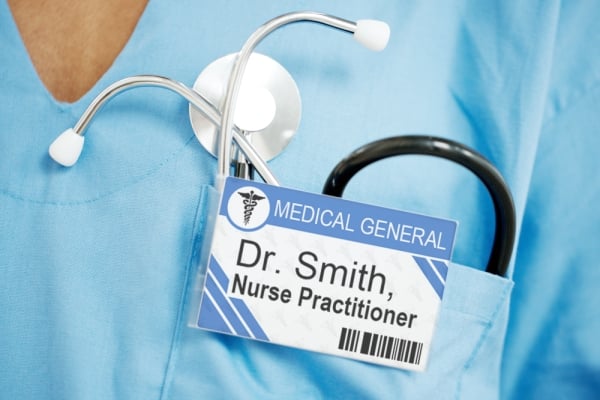- Advanced Practice Pulse
- Posts
- Mental Health Crisis and a Medication Shortage?
Mental Health Crisis and a Medication Shortage?
It's time to go back to school, let's discuss youth mental health and psychiatric care

Credit: Giphy
In Today’s Edition:
The "Title Misappropriation" debate continues
PA advocates to dispel mental health stigma, reduce care disparity
Practice updates in psychiatric care
Back to school...with ADHD medications in shortage
Surgeon General releases concerns for youth mental health
Meet Chris Krumrei, BSN, (PMHNP) mental health nurse practitioner student and inspiration
🩺 APP Trending News

Credit: Giphy
The "Title Misappropriation" debate continues
Many leaders lend insight into this ongoing debate. This is one article you shouldn't miss.
PA advocates to dispel mental health stigma, reduce care disparity
⚙️ The More You Know

Credit: Giphy
Practice updates in psychiatric care
Written by one of our own, PA Asbach is a psychiatric physician associate and serves as associate director of interventional psychiatry at DENT Neurologic Institute. Worth a read and we love seeing APP adding to professional diversity in authorship!
Back to school...with ADHD medications in shortage
The reason behind drug shortages are complex but the timing isn't great. We are sharing important strategies to share with parents including a little homework for parents as advocates. It's also important to incorporate therapy along with medication to treat ADHD.
Surgeon General releases concerns for youth mental health
A significant number of youths are facing challenges with their mental well-being and are not receiving the necessary assistance. Each of us has a part to contribute in bolstering the mental health of young individuals and crafting an environment in which they can flourish.
💡Inspiration for Aspirations
Meet Chris Krumrei, BSN, psychiatric mental health nurse practitioner (PMHNP) student, marine corps vet, second career nurse, father, and so much more!

Chris Krumrei, BSN, PMHNP student
Q: Chris, you entered the nursing field as a second career. Tell us a little about your background and what led you to nursing?
A: My first degree was in Economics. I had no idea what to do with that degree. I also had no idea what I wanted to do with myself at 21 so I went to law school. I didn’t finish law school, I joined the Marine Corps, then I was a financial advisor from 2007 to 2009. I worked for Merrill Lynch in Dallas, Texas. I watched the financial market crash while barely understanding what was going on, but what I did realize is how fragile the whole system was, and I was sick of lying to people about things I didn’t even understand. I felt like a cheap salesman with no real skill to offer. I realized with no real skill my own value was also fragile and made up largely of lies. I knew I wanted a skill. I wanted to hold real value, and provide real value.
So, I went to nursing school when I was 34 years old. I had not been in a classroom in over 10 years, and I was impressed how well I did. My first week of nursing school I discovered what a nurse practitioner did. I had no idea what a nurse practitioner was or how to become one. I knew immediately that I was going to become a nurse practitioner. At point, I didn’t know or care what kind of nurse practitioner I was going to be. I don’t know why any nurse would pass up two more years of school to gain prescriptive authority and practice independently.
I also like school. To me school is like a hobby that pays huge dividends. I’m two weeks away from graduating from my PMHNP program with a 3.9 GPA. I was six months into my program before I had memorized what the acronym PMHNP even stood for. I work hard in my classes and I care about my grades. I already know that I will go on to earn a PhD or DNP. I’m not sure in what area but I’m sure that I will.
Q: You are currently completing your APRN degree as a psychiatric mental health nurse practitioner (PMHNP). What led you to choose this field- or want to become an NP?
I have answered this question every time I was required to write an introduction at the beginning of each new class, and I have always answered it the same way. I spent the last 7 years in ICU’s, mostly Medical ICU’s and Cardiac ICU’s. 90% of the patients I took care of ended up in the ICU due to their own vices. Most of my patients are overweight and sick because they have treated their bodies similarly to buying a new car and never changing the oil. When I decided to go back to school to become a nurse practitioner, I didn’t want to continue putting band aids on people who failed to appreciate or protect the new lease on life they had been given. If that sounds cruel, go work in a CICU or MICU for a year and then we can talk.
I decided the best way I could help patients I meet in the ICU is if I had a chance to speak with them 20 or 30 years before they had succumbed to terminal self-neglect and immutable chronic disease. If I could speak with my patients 20 years before they end up in the ICU, I could help them care more about themselves and teach them how to care for themselves. The problem I see in so many of the chronically ill patients I meet is not education but apathy. In my opinion apathy regarding one’s quality and quantity of life is mental illness. People eat, drink, and smoke everything they want and accept dying in their late 50s because that’s what their parents did and their parent’s parents did. I want to help these people care more about the quality and quantity of their lives. I want them to pass on better habits to their children. If can help people care about themselves, they will invest in their health. I don’t have a time machine, but I can help people improve their mental health. That is why I decided to become a psychiatric mental health nurse practitioner (PMHNP).
Q: We are all for prevention! Can you describe a sort of "day in the life" of a PMHNP student?
The first year of PMHNP curriculum matches that of other NP programs. The interesting work begins with clinicals. My clinicals have included two very different areas. I have spent half my time at a large hospital in Indianapolis conducting psychiatric consultations on medical patients. Medical patients who are admitted due to self-injury, suicide attempt, drug overdose, or who have an established psychiatric history will almost always receive a psychiatric consultation. Medical patients who begin developing symptoms of delirium, depression, or suicidal ideation also commonly receive a psychiatric consultation. A psychiatric consultation is an order write by a medical provider who has decided that their patient would benefit from an assessment from a provider who specializes in psychiatric disorders, personality disorders, and prescribing psychiatric medications. My second clinical was in a private office with a psychiatric nurse practitioner who specialized in working patients age 5 to 25. I discovered pediatric psychiatric practices who are willing to host students are not very easy to come by. I drove an hour and 20 minutes to and from my pediatric psychiatric clinical. I also worked full time during my clinicals and would often work 14 days straight without a day off. Along with attending clinicals I submit discussion about patients including narrative notes and treatment plans every Wednesday. On Sunday night I usually have another paper to write and turn in, a quiz to submit, and replies to other students’ discussions to write. In my school my semesters are seven weeks long and each week included one module. I would attack one week’s worth of assignments each week and not concern myself with future assignments.
Q: It’s not an easy path to gain a great deal of responsibility, strong work! How do you imagine your future or what are you most excited about for your career?
This was the easiest question to answer. I just finished my pediatric psychiatric rotation with Leann Sharp at Hendricks Counseling in Lafayette Indiana. I never thought I would want to work with children in any capacity, but after being exposed to the creativity, experience, and ingenuity necessary to become an effective pediatric psychiatric provider I’m beginning to change my mind. There are very few medications which have become FDA approved for treating anxiety and depression in children, two in fact, for depression. Treating depression and anxiety in pediatric and adolescent population requires an extensive knowledge and willingness to prescribe medications off label. I am becoming more and more convinced that I am up for the challenge of becoming a first-rate pediatric psychiatric nurse practitioner. Bipolar is much more prevalent in people in their late teens than I previously thought. Rates of autism has tripled in the last 20 years from 1 in 150 children to now 1 in 37 children. For about $500 and a weekend of conferences a nurse practitioner can become ADOS certified which allows providers to diagnose autism in children over 12 months of age. Nurse practitioners can change anywhere from $800 to $1500 to test and diagnose autism.
I recently had an interview at an Ascension Hospital to work as a psychiatric nurse practitioner with inpatient and outpatient pediatric patients. Inpatient psychiatric work is a good place to start a career and build a foundation of practice. Physicians and nurse practitioner alike, can the bread and butter of psychiatric care while working on an inpatient psychiatric unit.
It sounds like a fulfilling future is in store for our nearly certified, NP Krumrei, increasing patient access to care! Thanks for sharing!
“If we seize this moment, step up for our children and their families in their moment of need, and lead with inclusion, kindness, and respect, we can lay the foundation for a healthier, more resilient, and more fulfilled nation.”
🔎ICYMI
Patients equally love their derm PAs’ and physician counterparts. It’s science
Emergency NPs are improving outcomes. It’s science
Low dose Aspirin may not have any role in the primary prevention of stroke in older adults
New CDC guidelines for RSV Vaccination in Adults
FDA Approves New Drug to Prevent RSV in Babies and Toddlers
A Little History Lesson: How the PA and NP Professions Were Started
Help us with our little conundrum: what interests our readers?!
You don’t want to be the only interesting APP at the water cooler. Please share, subscribe, and let us know what you would like to see in upcoming editions! Aspire to add content contributions to your CV or your accomplishments? Please share your knowledge. We would love to hear from you!
Email [email protected]



